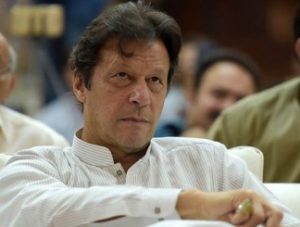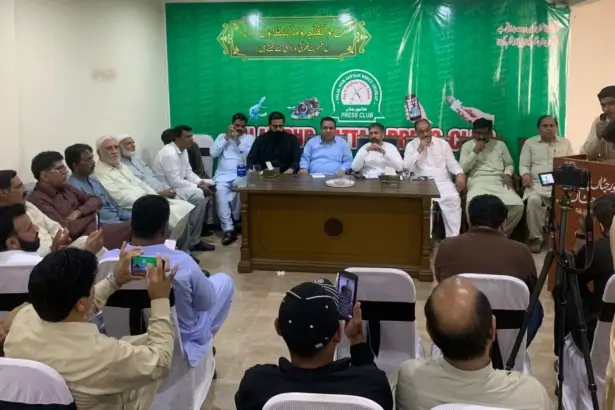PAKISTAN FAILING BASIC DUTY OF DEMOCRATIC GOVERNMENT: HUMAN RIGHTS WATCH
ANNUAL REPORT BY RIGHTS WATCHDOG SLAMS GROWING CRACKDOWN ON FREEDOM OF EXPRESSION UNDER PTI-LED GOVERNMENT
The growing crackdown on freedom of expression in Pakistan throughout 2019 is a failure of the government to fulfill one of the basic duties of a democratic state, Human Rights Watch said on Tuesday.
In the 30th edition of World Report 2020, a 652-page document that reviews human rights practices in nearly 100 countries, Human Rights Watch took aim at the ongoing clampdown in Pakistan on media, political opposition and non-governmental organizations. “Pakistan’s government is failing in one of the basic duties of a democratic government—providing an enabling environment for free expression and critical voices,” said Brad Adams, Asia director at Human Rights Watch. “Prime Minister Imran Khan’s government should focus on addressing longstanding human rights issues rather than muzzling those who bring attention to them,” he added.
According to the report, media outlets are increasingly under pressure from authorities over any perceived criticism of the Pakistan Tehreek-e-Insaf-led government. It cited regulatory bodies, such as the Pakistan Electronic Media Regulatory Authority, blocking private television channels for airing critical programs and providing coverage to opposition forces. “On July 9, the Pakistan Electronic Media Regulatory Authority blocked three television news channels—Capital TV, 24 News HD, and Abbtakk News Network—after they broadcast speeches by opposition leaders. On July 1, PEMRA terminated a live interview with former president Asif Ali Zardari on Geo News shortly after it began,” it said.
The rights watchdog also claimed to have received several credible reports of intimidation, harassment, and surveillance of various NGOs and their staff by government officials, alleging that Islamabad was misusing a policy to regulate international NGOs to hamper the registration and functioning of humanitarian and human rights groups.
It said that P.M. Khan’s was exerting great pressure on members and supporters of opposition political parties. “Lawyers and rights groups expressed concerns of denial of due process and fair trial rights after several opposition leaders, including a former head of state and cabinet ministers, were arrested on corruption allegations,” it added.
The World Report 2020 also criticized Pakistan’s failure to amend or repeal the blasphemy law to prevent arbitrary arrests and prosecution. It is unlikely this will change anytime soon, as P.M. Khan has repeatedly suggested that he would like to see similar laws implemented globally.
On a brighter note, the Human Rights Watch report praised the passage of key reforms for women’s rights. “The Sindh provincial cabinet approved a new law in August providing the right of women agricultural workers to have a written contract, minimum wage, welfare benefits, and gender parity in wages. It was the first time that Pakistan recognized the right of women agricultural workers to unionize,” it said.
However, the rights watchdog’s view of Pakistan’s law enforcement agencies was far less rosy. It accused authorities of human rights violations, including detentions without charge and extrajudicial killings. It also criticized Islamabad’s failure to enact a law criminalizing torture.
“Pakistani authorities should acknowledge diversity of opinion as a strength, not a weakness,” said Asia director Adams. “Instead of stifling dissent, the government needs to take urgent steps to hold its security forces accountable, repeal discriminatory laws, and demonstrate a genuine commitment to the rule of law.”
There have been concerns about the PTI-led government’s heavy-handed tactics since it came into power following general elections in 2018. Prime Minister Khan has repeatedly rebuffed these claims, telling a gathering in New York last year that the “media in Pakistan is freer than that in Britain.


